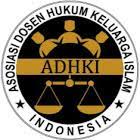| ..:: PEOPLE ::.. |
| Tim Editorial And Reviewer |
| Contact Us |
| ..:: POLICIES ::.. |
| Publication Ethics |
| Open Access Statement |
| Copyright and License Statement |
| Article Publication Charge |
| Archiving Policy |
| Conflict of Interest |
| Indexing and Abstracting |
| ..:: SUBMISSION ::.. |
| Online Submission |
| Reviewer Guidelines |
| Authorship and Contributorship |
| Manuscript Templete |
| Complaints and Appeals |
| ..:: INDEXED BY ::.. |
 |
 |
 |
 |
 |






